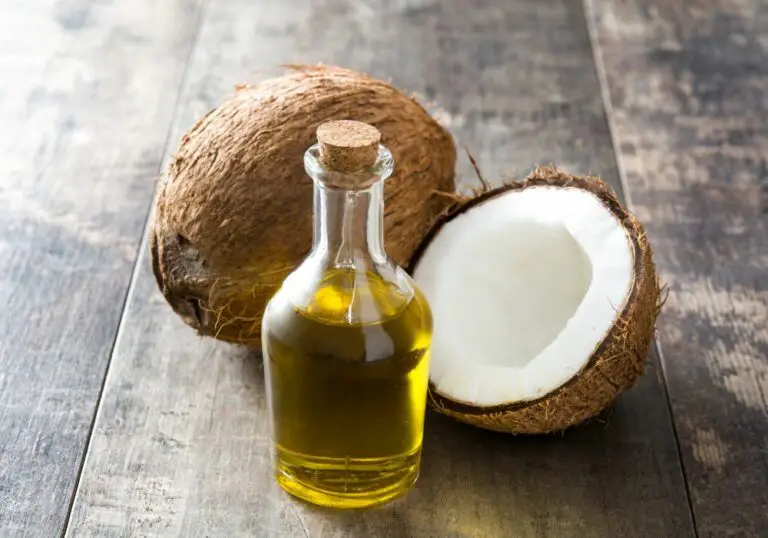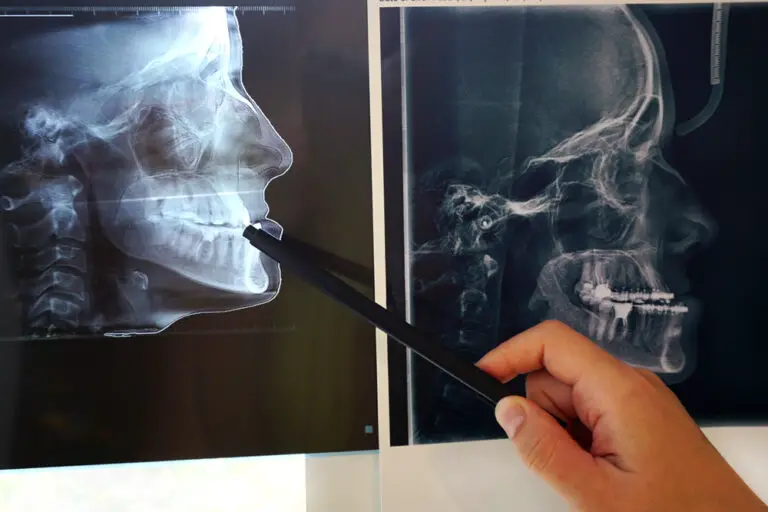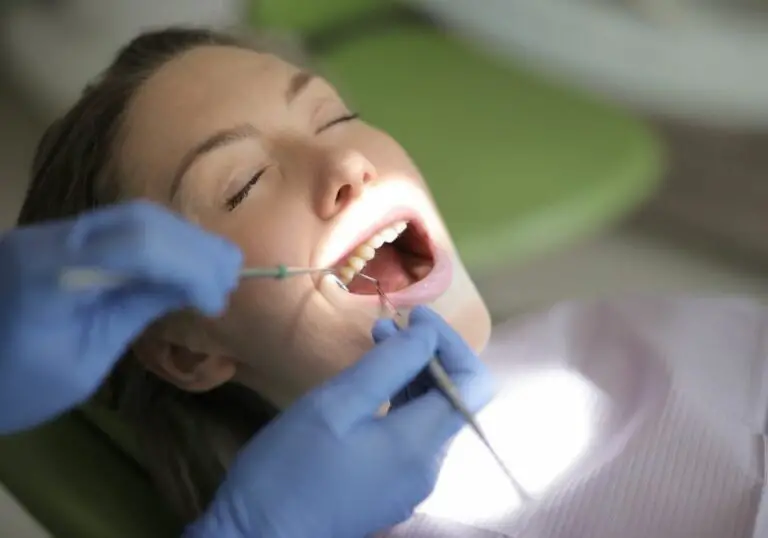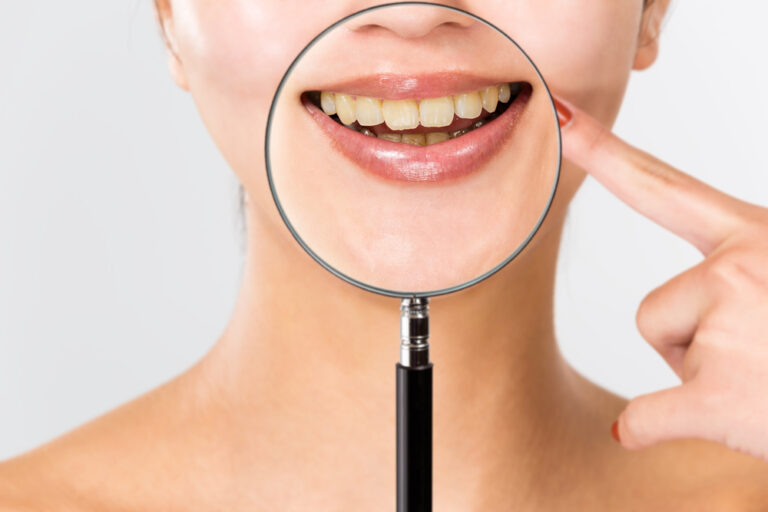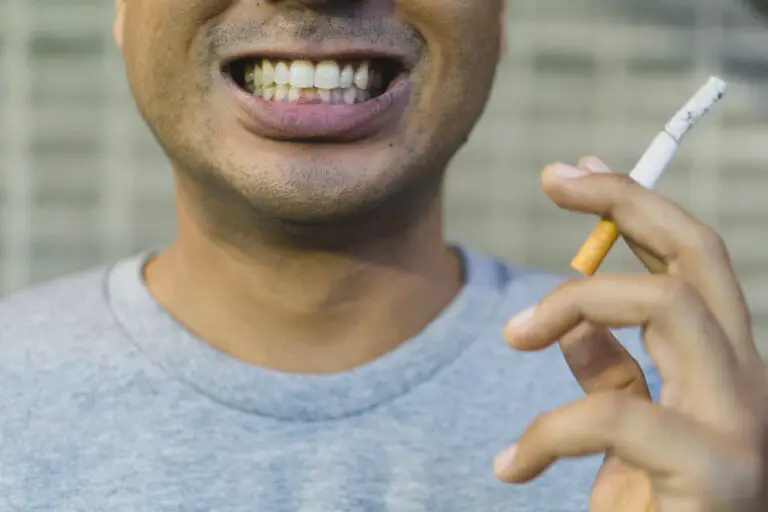We all want to keep our teeth in the best possible condition, allowing us to smile with confidence – but unfortunately, almost everyone faces problems with their teeth at some point in their life, whether it’s something serious or minor.
One fairly common issue is when we find white stuff in our mouths, and to help diagnose the problem and give you info about how to treat it, in this post, we answer the question, what is the white stringy stuff in my mouth after I brush my teeth?
When do you find white stuff in your mouth?
There are several reasons why you can have white stuff in your mouth, and to identify what it is, it’s important to think about when you usually find it as well as the precise form it takes.
There are three major causes of white stuff in your mouth, and each requires different action – so now let’s look at what might be behind the white stuff in your mouth and what you can do about it.
white film in mouth Possibility 1: A reaction to your toothpaste
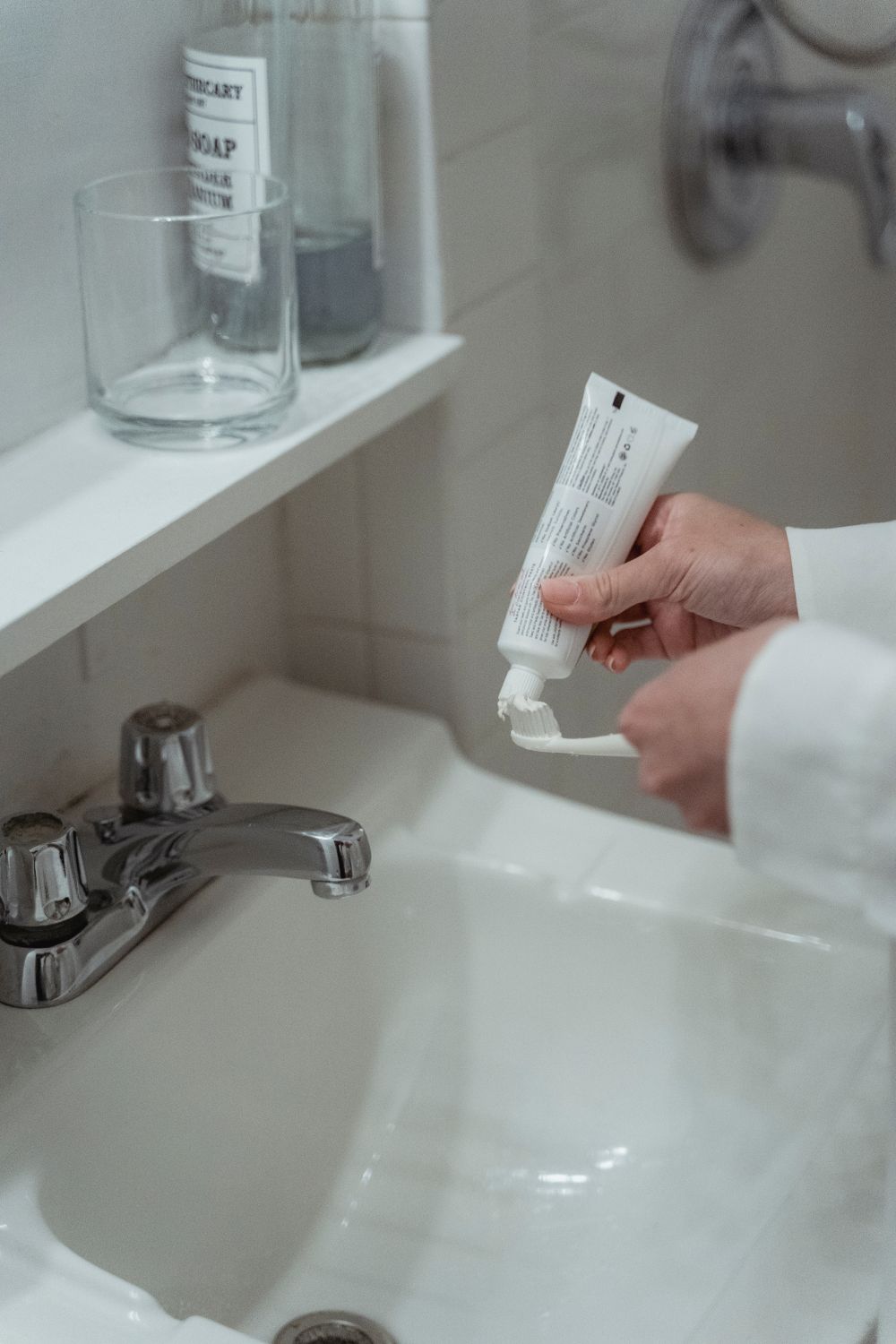
If you often find white stuff in your mouth after brushing, it is most likely due to a reaction to your toothpaste.
After brushing and rinsing with water, you may find white stringy stuff or globules of white slime in your mouth, and this can last for ten minutes or even up to an hour after brushing, even if you rinse thoroughly after you brush.
The most likely reason for this is that your toothpaste contains certain ingredients that are reacting with your saliva, that are causing a kind of allergic reaction or that are just too harsh for your sensitive mouth.
When this happens, the harsh ingredients in your toothpaste cause the cells lining the insides of your cheeks to slough off, and as they collect in your mouth, this creates the white, slimy, stringy stuff.
This can be particularly unpleasant, and since the effect doesn’t stop as soon as you stop brushing, the stringy stuff may continue to appear for some time, even after rinsing and spitting.
It’s also possible that the same thing can happen if you use a particularly harsh mouthwash, especially one with a high alcohol content.
To learn more about this kind of problem, you can also check out this video.
What you can do about it
The best thing to do if you experience white stringy stuff in your mouth after brushing is to change your toothpaste since it could be that your mouth is too sensitive to the brand you are using.
In general, this kind of effect is more common for people who use whitening toothpaste, so if you use this kind of paste, it could be a good indication that this is what’s to blame. Try switching to regular toothpaste instead to see if that helps.
Alternatively, if you don’t use whitening toothpaste, it could be that even your regular toothpaste is too harsh for your mouth.
In this case, try switching to a specialist sensitive toothpaste like Sensodyne or Mentadent since these kinds of products are much gentler and less likely to cause this kind of reaction.
white film in mouth Possibility 2: Oral thrush
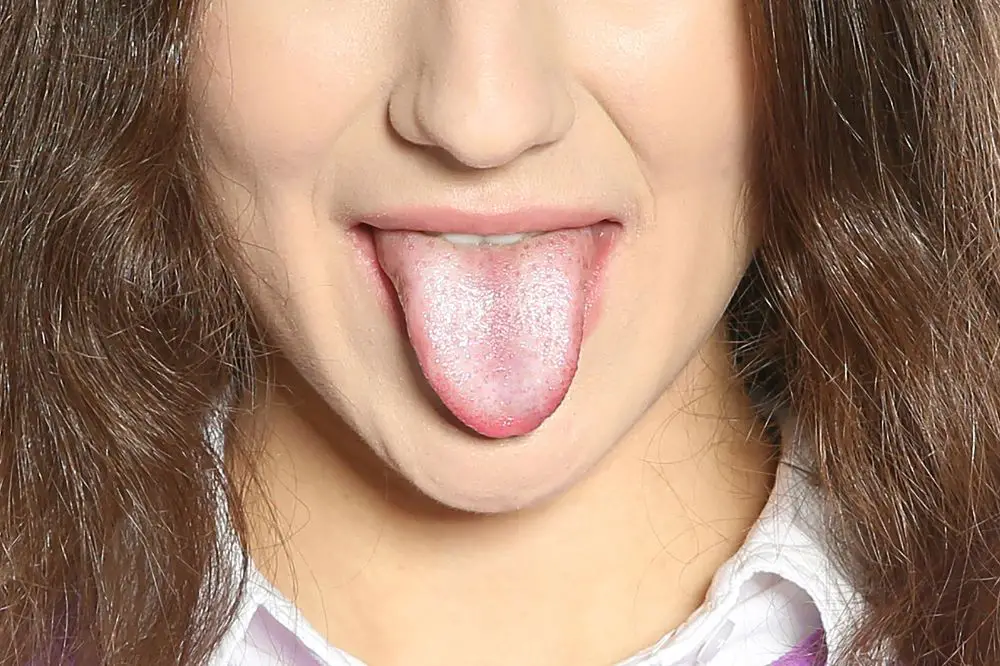
If you find white goo in your mouth, another possibility is that you are suffering from dental thrush, although this is more likely to manifest itself in the morning when you wake up than it is after brushing.
Dental thrush is caused by the Candida fungus, a type of naturally-occurring yeast that is present in our bodies.
Usually, bacteria in our bodies keep the development of this fungus in check, but a change in our immune system can allow the fungus to gain the upper hand, causing it to bloom.
When this happens, we can find a white film covering our tongue and the roof of our mouth when we wake up, and it can even spread to our throat and other parts of the body if it continues to develop.
Causes for the spread of oral thrush include the following:
- Poor oral hygiene
- Stress
- Dry mouth
- Hormonal changes due to pregnancy
- HIV/AIDS
- Cancer
- Diabetes
What you can do about it
In most cases, oral thrush takes care of itself, and it’s usually nothing to worry about.
However, there are several actions you can take to help clear it up as quickly as possible.
Following good oral hygiene practices is the first step, so you should brush your teeth at least twice a day and you should floss regularly. Using mouthwash can also help keep your mouth clean and free of bacteria and fungus.
Make sure you also drink lots of water to stay properly hydrated since this will help prevent the spread of the fungal infection.
If the thrush doesn’t clear up after a few days or a week, you might also consider booking an appointment with your dentist since the thrush could be caused by an underlying health condition you are unaware of.
white film in mouth Possibility 3: Plaque build-up on your teeth
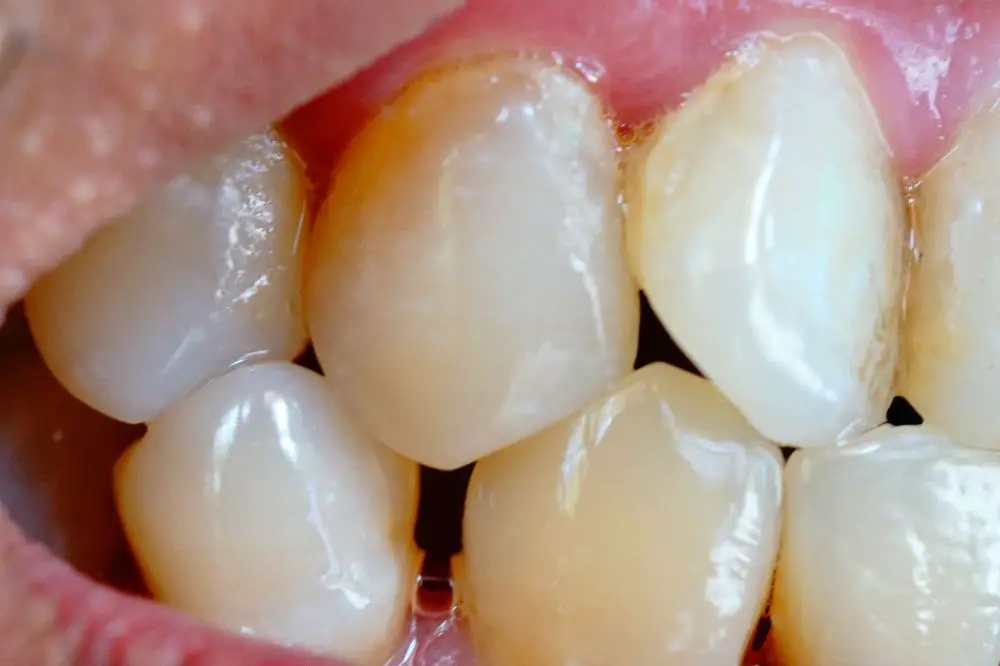
The third possibility if you have some kind of white film on your teeth is that it’s a build-up of plaque, and this is something that everybody faces – keeping plaque under control is one of the main reasons we need to clean our teeth.
Plaque is essentially a thin layer of “biofilm” made up of microbes in your mouth that form together into colonies that are held together by a kind of polymer.
When you wake up each morning, your teeth will already be covered in a layer of plaque, which you then remove when you brush. If you run your fingernail gently over your teeth before brushing, you will be able to see the plaque on your finger.
However, if plaque is left on your teeth for as little as 12-24 hours, it can start to combine with the minerals that are naturally present in your saliva, and when this happens, it solidifies into tartar.
Tartar is more of a problem since once it forms, it can’t be removed by brushing alone and will need to be removed by a professional dental hygienist.
If tartar is allowed to form, it attracts stains from things like coffee or red wine, and it can also lead to gum disease and cavities.
What you can do about it
Prevention is always better than cure, and you can prevent plaque from developing into tartar by always following recommended oral hygiene practices.
This means brushing at least twice a day is essential, and flossing is also an important part of removing plaque from teeth before it has time to develop into tartar.
Furthermore, seeing a dental hygienist for dental cleaning twice a year will also help remove any tartar that has begun to build up before the problem becomes more serious.
If you neglect to visit your dentist or dental hygienist for a long time, the build-up of tartar is likely to become more serious and it will be more difficult to remove.
However, the solution is the same – a dental hygienist will be able to remove the tartar from your teeth, but the procedure is likely to take a lot longer and be more uncomfortable due to the more significant amount of tartar on your teeth.
Far better is to make sure you have your dental cleaning done more regularly since this will ensure the visit is shorter and more painless each time you go.
FAQs
Is it normal to have white stringy stuff in your mouth?
Although it’s perhaps not the most common dental issue that people face, it is something that can happen, so it’s nothing too strange.
Generally speaking, this kind of problem is due to using a toothpaste that isn’t suited to you, and just by switching to another brand, you may find the problem resolves itself.
It can also be due to the type of mouthwash you use, so it’s also worth changing that as well to see if that helps.
Does it matter if you miss brushing or flossing once or twice in a row?
To prevent plaque from building up and turning into tartar, it’s best to try to avoid missing brushing or flossing even once. However, this is just something that can happen, so if you don’t brush or forget to floss for a couple of days, it’s not the end of the world.
Furthermore, plaque and tartar build-up is something that happens naturally anyway, and even if you brush twice a day and never miss flossing, you still need to see a dental hygienist twice a year to remove any plaque and tartar that has begun to build up.
Can you scrape tartar off by yourself?
No, it’s highly recommended that you avoid trying to scrape any tartar from your teeth by yourself – because if you do, you risk removing the enamel from your teeth and permanently damaging them.
If you have a tartar build-up on your teeth, the best – and only – thing for you to do is to book an appointment with your dental hygienist for proper dental cleaning.
Three common issues
As we’ve seen, there are three common issues that can leave you with white stuff in your mouth, and it may be related to the toothpaste you use, or it could be down to your dental hygiene routine.
As a result, the solution could be as simple as changing your toothpaste brand – and sticking to dental hygiene best practices is recommended at all times, regardless of any issues you might have with white goo in your mouth.

